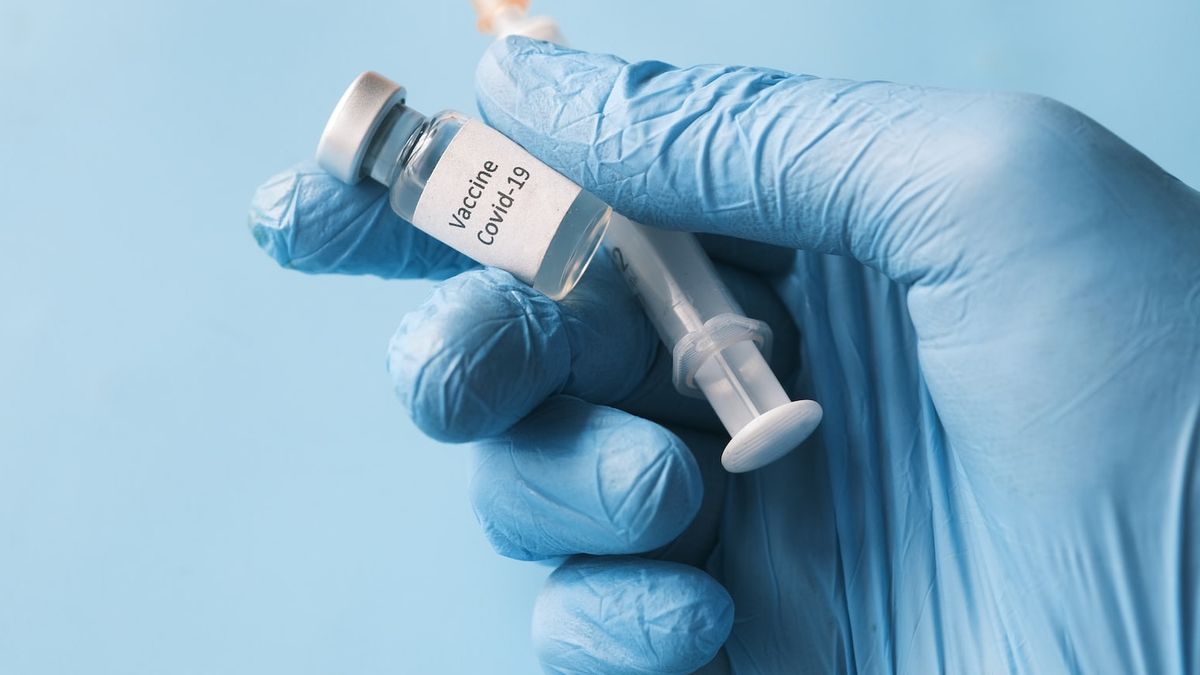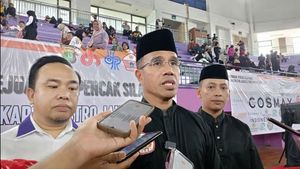JAKARTA - The government was asked to conduct clinical trials of domestic vaccines, Indovac and Inavac, to increase the stock of vaccines, especially vaccines for children aged 6-11 years, which turned out to be empty for a long time. This is done while waiting for recommendations from WHO and studies from ITAGI (Indonesian Technical Advisory Group on Immunization) as well as IDAI (Indonesian Pediatrician Association) in the future using Pfizer vaccines in children over the age of 6. "Indeed, vaccines for children are still not yet, we are still waiting from WHO. I think while waiting, we encourage the government to prepare itself so that vaccines of Indovac and Inaviac from those produced by Unair and Bio Farma to conduct clinical trials, especially for children in order to increase their vaccine stocks and child boosters, immediately that," said Member of Commission IX DPR RI Rahmad Handoyo, when contacted by VOI, Monday, January 2. However, after a clinical trial study was made on both vaccines of the nation's children, the government must also commit to buy to be used as vaccines that will be injected into the community. "So far, what the government has bought is limited, only limited to Indovac 5 million, Inavac 5 million. So there must be a consensus from the government to buy because clinical trial results is not easy, expensive and requires volunteers from children," said the PDIP legislator. Then, after there is a recommendation from WHO regarding the Pfizer vaccine for children aged 6 years and over, the government must also have sufficient stock of child booster vaccines. "If for vaccination one, two, that's enough. So the government must also give a good response to Indovac and Inovac, although we know there can be for children already emergency permits," said Rahmad. Previously, the Head of Communication and Public Services Bureau of the Ministry of Health (Kemenkes) Siti Nadia Tarmizi, responding to the empty stock of COVID-19 vaccines for vaccinations for children aged 6-11 years in Indonesia.
Nadia admitted that the stock of Sinovac vaccines designated as vaccines for children aged 6-11 years had run out since a few months ago. Now, the government is still waiting for a new vaccine produced by PT Bio Farma to continue vaccinating children 6-11 years old.
"We are still waiting for domestic production to be used immediately," said Nadia in a short message, Monday, January 2.
Currently, the Food and Drug Supervisory Agency (BPOM) has granted permission for the COVID-19 vaccine for children 6 months to 11 years old using Pfizer. Pfizer's stock in Indonesia is also still declared sufficient.
However, the Ministry of Health has not issued a decree to local governments to use vaccines other than the Sinovac type to children 6-11 years old.
"We are still waiting for recommendations from WHO and studies from ITAGI (Indonesian Technical Advisory Group on Immunization) and IDAI (Indonesian Pediatrician Association) to use Pfizer at the age of over 6 years," said Nadia.
In general, based on the results of the survey series, Indonesia's population immunity as of July 2022 touched 98.5 percent. This community immunity coverage increased from December 2021 which touched 87.8 percent.
As long as COVID-19 still exists, the group most at risk of contracting the corona virus is people aged 18 years and over, especially the elderly.
"This group (18 years and over) must be pursued first (vaccination) because of its higher mobility. So, this must now be pursued while waiting for the availability of vaccines for children," explained Nadia.
The English, Chinese, Japanese, Arabic, and French versions are automatically generated by the AI. So there may still be inaccuracies in translating, please always see Indonesian as our main language. (system supported by DigitalSiber.id)













